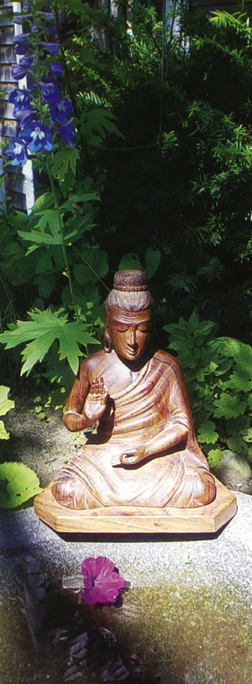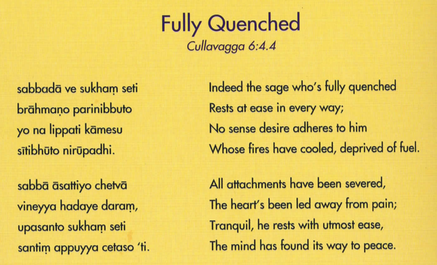 When Anāthapiṇḍika, the wealthy merchant from Sāvatthī, visited Rājagaha one time on business, he found the household of his wife’s family in great commotion and unable to greet him with their characteristic style. He was told by his host that the Buddha had been invited for a meal the next day, and all the preparations were for this momentous event. The sound of the Buddha’s name, we are told, stopped Anāthapiṇḍika in his tracks. “Did you say ‘Buddha?'” he asked three times, as if sensing some great karmic confluence. He was so thrilled at the prospect of meeting him that he awoke three times during the night, thinking that dawn was at hand.
When Anāthapiṇḍika, the wealthy merchant from Sāvatthī, visited Rājagaha one time on business, he found the household of his wife’s family in great commotion and unable to greet him with their characteristic style. He was told by his host that the Buddha had been invited for a meal the next day, and all the preparations were for this momentous event. The sound of the Buddha’s name, we are told, stopped Anāthapiṇḍika in his tracks. “Did you say ‘Buddha?'” he asked three times, as if sensing some great karmic confluence. He was so thrilled at the prospect of meeting him that he awoke three times during the night, thinking that dawn was at hand.
He got up so early the next morning that it was still dark as he made his way out of the city to the Cool Grove where the Buddha was pacing back and forth in his morning walking meditation. He approached with fear on account of the darkness, the hair standing up on the back of his neck. After all this Anāthapiṇḍika could manage no more than a conventional greeting to the Buddha of “I hope all is well with you, Sir?” Whereupon he received these magnificent two stanzas in reply.
The poem simply but elegantly expresses the nature of the Buddha’s awakening. It would have been uttered shortly after the event, and well before he gathered a large following. Notice how the language is expressing a psychological transformation rather than a cosmological event. All eight lines of the poem say something about the cessation of suffering, the relinquishing of desire, the discovery of peace—here and now. There is nothing about former or future Buddhas, nothing about the workings of karma, and nothing about the end of rebirth or the fulfillment of a destiny.
The rest, of course, is history. Anāthapiṇḍika is taught dharma there and then by the Buddha, immediately attains stream-entry, and becomes one of the Buddha’s most generous supporters to the end of his days.
